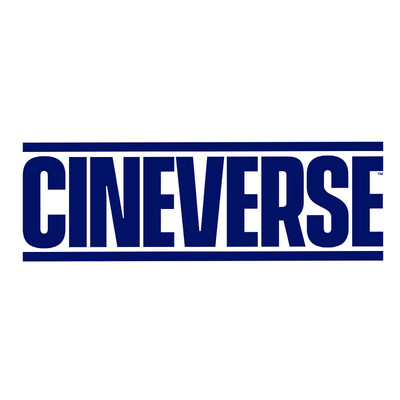Cineverse Partners with Google Cloud to Launch a Conversational AI-Powered Search & Discovery Tool for Film and Television Content
- None.
- None.
Insights
The introduction of cineSearch by Cineverse Corp. represents a significant advancement in the streaming technology landscape. This innovation is likely to influence user engagement metrics positively, which are critical for the company's growth and investor confidence. The utilization of AI to enhance content discovery addresses the growing demand for personalized and efficient search capabilities within the streaming industry. As the service is designed to work across all streaming platforms, it could potentially lead to strategic partnerships, expanding Cineverse's market reach and strengthening its competitive position.
Moreover, the proprietary nature of the AI model and the use of enriched metadata could create a unique value proposition for cineSearch. This differentiation is vital in an industry where content discovery is a key driver for user retention and acquisition. The ability to recommend content based on a wide array of viewer-specific factors, including viewing history and environmental conditions, suggests a high level of personalization that may lead to increased viewer satisfaction and, consequently, longer viewing times and subscription stability.
The deployment of Google Cloud's Vertex AI Search and the PaLM 2 Large Language Model in cineSearch's infrastructure represents a strategic move by Cineverse Corp. to leverage cutting-edge technology. The AI's conversational capabilities and scene-specific metadata analysis could result in a more natural and intuitive user experience, potentially setting a new standard for search functionalities within the entertainment sector.
From a technological perspective, the integration of computer vision for contextual metadata and the application of scene-level analysis could be seen as innovative steps towards a more granular and sophisticated recommendation system. The technical complexity and potential scalability of such a system may attract interest from investors who are keen on companies at the forefront of AI implementation. However, the success of this technology will depend on its accuracy, speed and the ability to integrate seamlessly with various streaming platforms without compromising user privacy or data security.
For investors, the financial implications of Cineverse's cineSearch platform could be multifaceted. The initial investment in AI technology and infrastructure, including the partnership with Google Cloud, indicates a commitment to innovation, which could drive long-term growth. However, the associated R&D and operational costs need to be considered. The potential revenue streams from licensing this technology to third parties or through increased subscriptions due to improved user experience could be significant.
It is essential to monitor the adoption rate of cineSearch post-launch and the impact on subscriber churn and acquisition. The market's response to this innovation, particularly in terms of competitive offerings and intellectual property challenges, will also play a crucial role in determining the financial success of this initiative. Investors should look for quantitative metrics in subsequent earnings reports, such as increases in subscriber numbers and average revenue per user (ARPU), to gauge the platform's performance.
The cineSearch Service Enhances Content Discovery via an Extensive Catalog of Enriched Metadata to Power a Next-Generation Recommendation System with Unified Search Across All Streaming Platforms
The public beta of cineSearch will be available within the Cineverse streaming platform in Spring 2024 (users can join the waitlist for the public beta starting today at www.cinesearch.com). It will then be made more widely available in partnership with OEM and third-party streaming platform partners in the near future.
The cineSearch service was developed by Cineverse using Google Cloud's Vertex AI Search. The underlying core cineSearch technology was built as an adaptive layer on top of the PaLM 2 Large Language Model (LLM) with the intent to craft a chatbot specifically tuned for feature film and television entertainment. Through the use of PaLM 2 and Google Cloud's gen AI infrastructure, cineSearch promises an innovative, conversational experience for those seeking advice on what films to watch.
As part of this new service, Cineverse is introducing a new "artificial intelligence-based video advisor" that will be known simply as "Ava."
The launch of Cineverse's AI-powered search feature will utilize the first proprietary movie industry-specific AI model specifically tuned with an extensive set of metadata – both standard metadata as well as computer vision-based enriched, contextual metadata (such as weather or setting) – across more than 100,000
The cineSearch service will also utilize scene-specific metadata and a viewer's previous viewing history as well as their location, the current date, the local weather conditions, and other factors to determine the ideal titles to recommend. Viewers will be able to conduct searches across a plethora of characteristics at the film and scene-level, making the process of finding the perfect movie more intuitive, simple and entertaining. In addition, if a particular movie is not available within Cineverse's extensive catalog, Ava will recommend films available elsewhere – and provide direct links to access films available across other streaming services – for a seamless movie discovery experience.
"Effective search and discovery is currently the most pressing problem for users of streaming services today," says Tony Huidor, Chief Technology Officer & Chief Operating Officer of Cineverse. "We first developed cineSearch as an answer to our own problem. Using Google Cloud's Vertex AI platform, we now have the ability to expand this feature well beyond our initial expectations. We feel this is a great example of leveraging the power of AI to not only create better user experiences, but to also help aid in the discovery of great films that fans may not have otherwise found."
"Generative AI has the potential to fundamentally transform the media industry, fueling a new era of cloud-enabled capabilities that can significantly improve the consumer experience," said Anil Jain, Global Managing Director of Strategic Consumer Industries at Google Cloud. "By leveraging Google Cloud's leading gen AI capabilities, cineSearch can further personalize and streamline the user experience, providing viewers a vastly improved way to discover new content, with relevant recommendations for movies and television shows at their fingertips."
Cineverse stands as the vanguard in the movie industry by applying AI technology in a first-to-market, enhanced search feature that enables users to search across multiple dimensions unavailable on any other platform. This unprecedented service also serves as a testament to AI's potential to propel the entertainment industry forward by bringing attention to content that may not otherwise be discovered by fans.
About Cineverse
Cineverse's advanced, proprietary technology drives the distribution of over 70,000 premium films, series, and podcasts to more than 150 million unique viewers monthly. From providing a complete streaming solution to some of the world's most recognizable brands, to super-serving their own network of fan channels, Cineverse (NASDAQ: CNVS) is powering the future of Entertainment. For more information, please visit www.cineverse.com.
Press Contact:
For Media
The Lippin Group, cineverse@lippingroup.com
For Investors
Julie Milstead, investorrelations@cineverse.com
![]() View original content to download multimedia:https://www.prnewswire.com/news-releases/cineverse-partners-with-google-cloud-to-launch-a-conversational-ai-powered-search--discovery-tool-for-film-and-television-content-302061551.html
View original content to download multimedia:https://www.prnewswire.com/news-releases/cineverse-partners-with-google-cloud-to-launch-a-conversational-ai-powered-search--discovery-tool-for-film-and-television-content-302061551.html
SOURCE Cineverse Corp.








